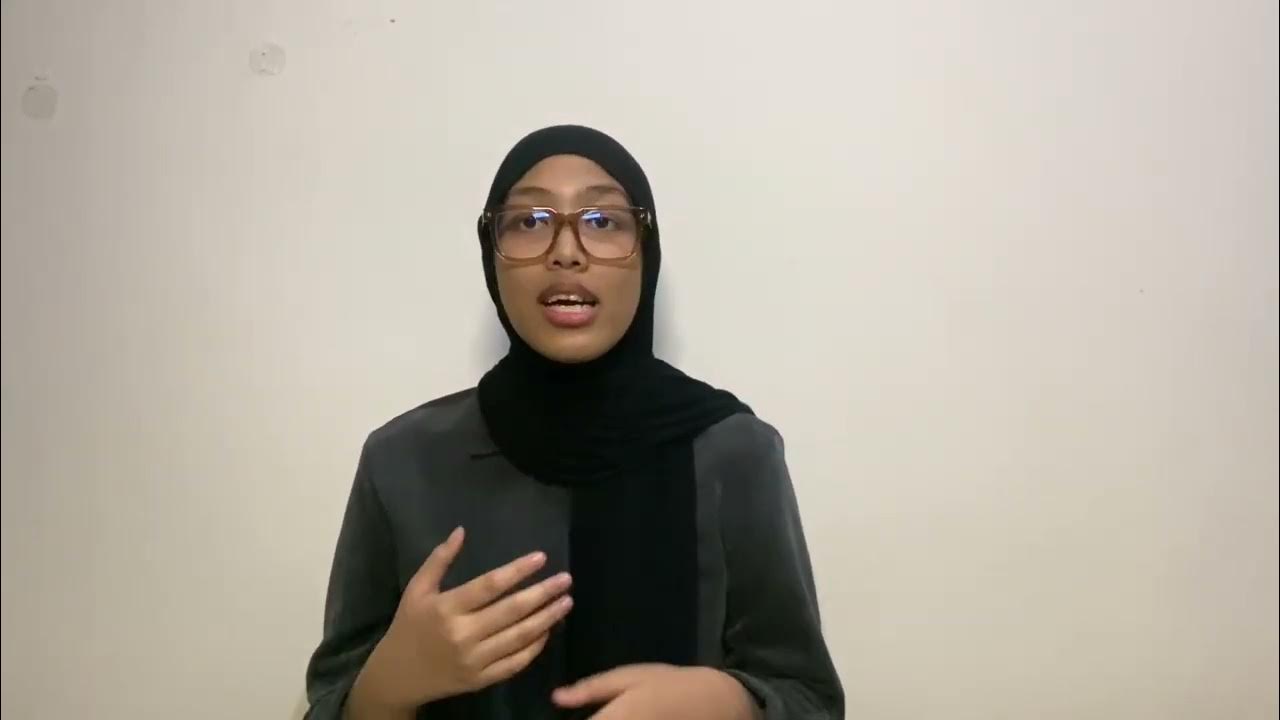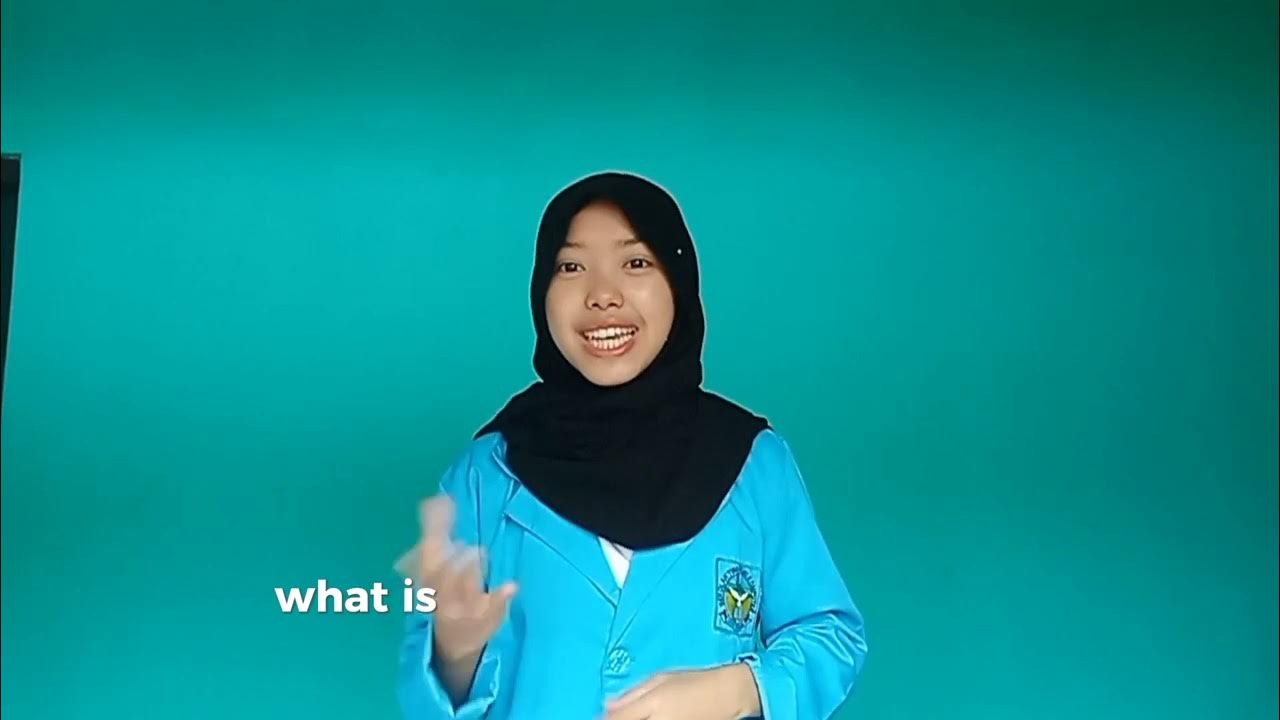ASEAN Youth Video Speech Challenge - Catherine Joy Reynoso
Summary
TLDRThe ACCP conference focuses on fostering regional collaboration to combat plastic pollution in the ASEAN region. Key recommendations include strengthening leadership for more effective partnerships and ensuring flexibility to increase inclusivity. A strong leadership is vital for guiding regional efforts and driving partnerships, while inclusivity emphasizes understanding each stakeholder's unique needs, skills, and perspectives. The aim is to set achievable goals that allow all participants to contribute meaningfully towards addressing plastic pollution in the region.
Takeaways
- 😀 Strong leadership is essential for effective regional collaborations to combat plastic pollution.
- 😀 Regional partnerships should be coordinated with clear leadership to reduce plastic pollution.
- 😀 AMS (Asian Member States) and other stakeholders may need to lead partnerships beyond official ACN procedures.
- 😀 Inclusivity is key, as each AMS and stakeholder has different priorities, needs, and circumstances.
- 😀 The goal is to create realistic objectives that can be achieved by fostering collaboration and valuing diverse perspectives.
- 😀 Setting excessively ambitious goals can hinder progress; focus should be on achievable targets.
- 😀 Leadership should prioritize both inclusivity and cooperation to ensure diverse perspectives are valued.
- 😀 A flexible approach is important to accommodate the unique conditions of different stakeholders.
- 😀 Effective solutions to plastic pollution require collaborative effort across various regional stakeholders.
- 😀 Every participant in the regional collaboration should be encouraged to contribute their unique skills to the collective effort.
Q & A
What is the primary goal of the ACCP (Asian Conference on Combating Plastic Pollution)?
-The primary goal of the ACCP is to promote regional collaborations for addressing plastic pollution in the ASEAN region.
Why is strong leadership necessary in regional collaborations for reducing plastic pollution?
-Strong leadership is necessary to guide regional activities, facilitate conversations, and coordinate partnerships effectively in the fight against plastic pollution.
How can ASEAN member states (AMS) and other stakeholders contribute to regional collaboration?
-AMS and other stakeholders can take the initiative to lead and coordinate partnerships outside of the official ACN procedures when necessary, ensuring effective collaboration in reducing plastic pollution.
What is the role of inclusivity in addressing plastic pollution in the region?
-Inclusivity plays a crucial role by valuing each participant's distinct skills and perspectives, fostering collaboration, and helping to achieve realistic objectives tailored to each party's needs.
Why should the goals for plastic pollution reduction be realistic rather than overly ambitious?
-Setting realistic goals ensures that all stakeholders can contribute meaningfully according to their capabilities, making it easier to achieve practical and achievable outcomes.
What does the script suggest regarding the differing priorities of AMS and other stakeholders?
-The script suggests that every AMS and stakeholder has different priorities, needs, and circumstances, so it is important to tailor efforts accordingly and foster a collaborative environment.
What are the key actions recommended for strengthening regional collaboration on plastic pollution?
-The key actions recommended are strengthening leadership in regional efforts and ensuring flexibility to increase inclusivity in the process.
How can the leadership be strengthened to address plastic pollution more effectively?
-Leadership can be strengthened by ensuring that key stakeholders take the initiative to lead and coordinate partnerships, and by focusing on collective efforts to reduce plastic pollution.
What is meant by 'flexibility for increased inclusivity' in the context of this initiative?
-Flexibility for increased inclusivity means adjusting strategies to accommodate the different priorities and needs of AMS and stakeholders, ensuring that everyone can contribute based on their own strengths.
What is the importance of fostering inclusivity in tackling plastic pollution?
-Fostering inclusivity ensures that all voices and skills are valued, which leads to more diverse and effective solutions in the fight against plastic pollution.
Outlines

This section is available to paid users only. Please upgrade to access this part.
Upgrade NowMindmap

This section is available to paid users only. Please upgrade to access this part.
Upgrade NowKeywords

This section is available to paid users only. Please upgrade to access this part.
Upgrade NowHighlights

This section is available to paid users only. Please upgrade to access this part.
Upgrade NowTranscripts

This section is available to paid users only. Please upgrade to access this part.
Upgrade NowBrowse More Related Video

ASEAN Youth Video Speech Challenge - Muhammad Rifat

ASEAN Youth Video Speech Challenge - Clarine Aurellia

ASEAN YOUTH VIDEO SPEECH CHALLENGE | DALLA HUMAIRA MAGANI IRSAN | BINUS UNIVERSITY 2025

ASEAN Youth Video Speech Challenge - Muhammad Syamsudhuha Abdullah

ASEAN Youth Video Speech Challenge - Anggita Indraswari

ASEAN Socio-Cultural Community - Bringing Opportunities Closer to ASEAN People
5.0 / 5 (0 votes)